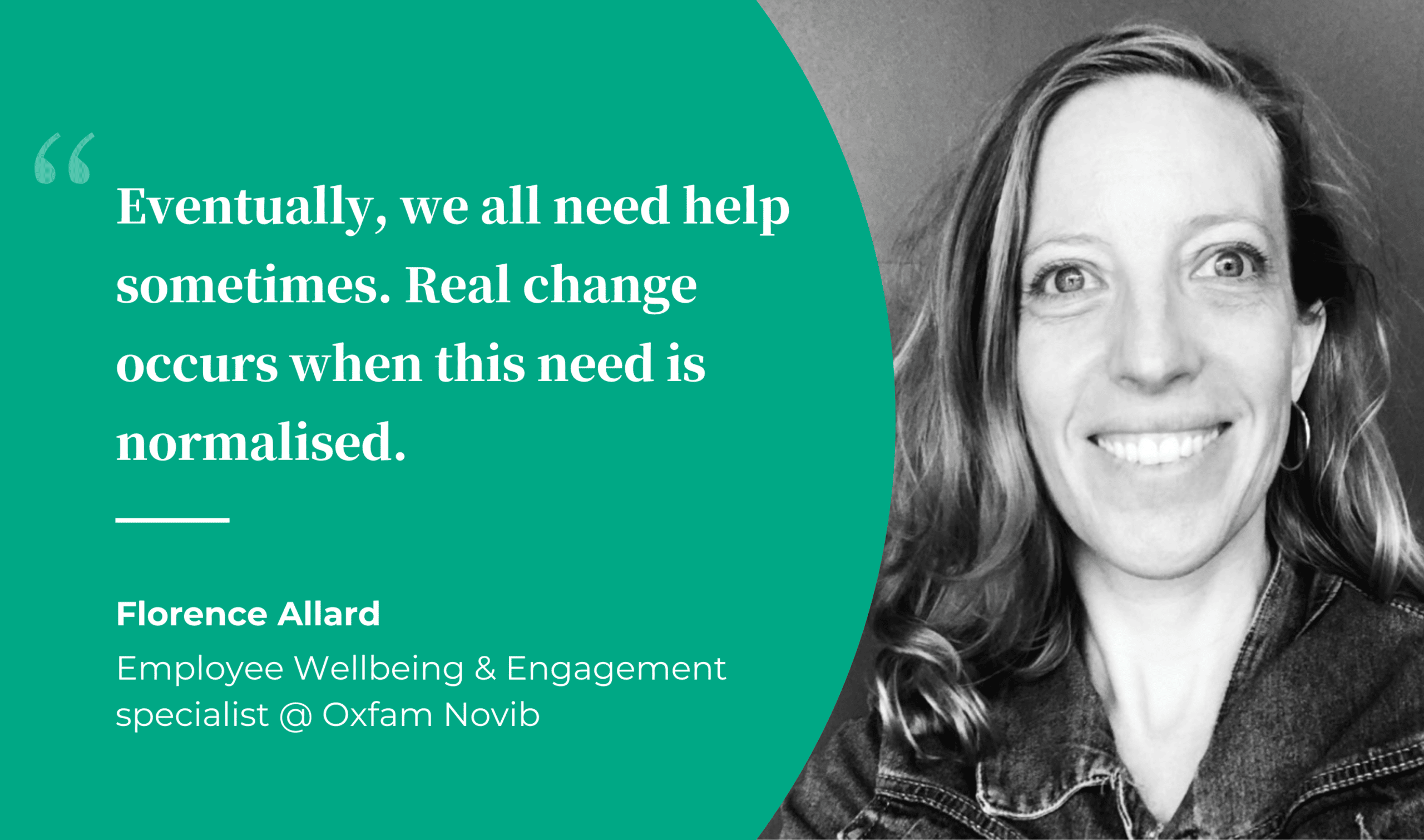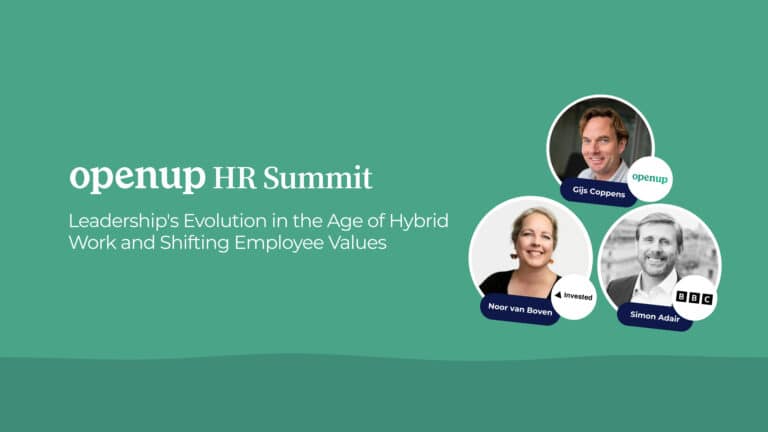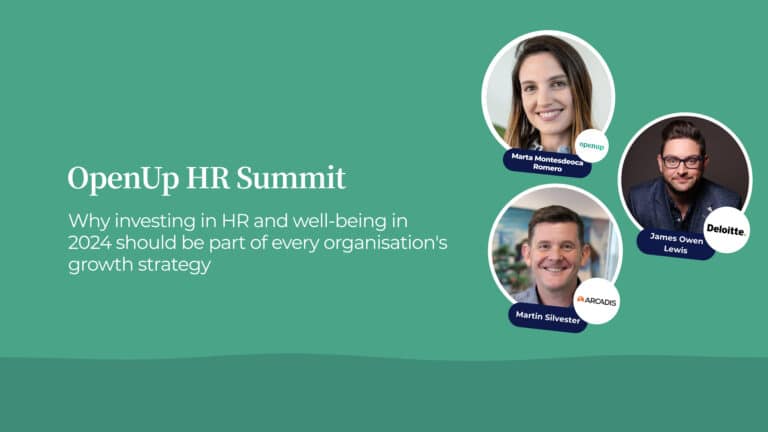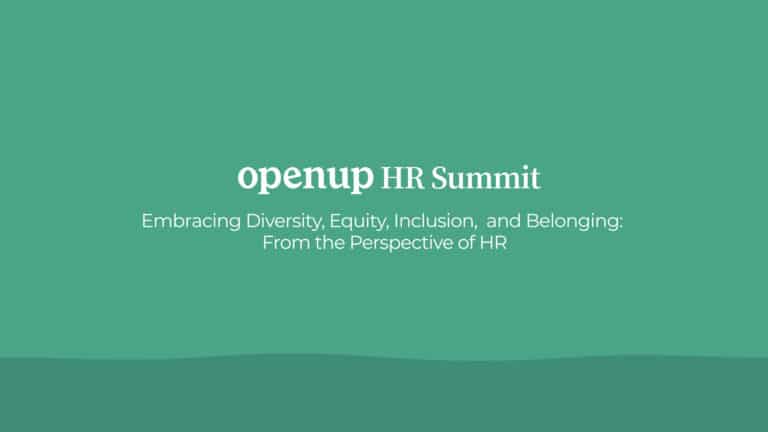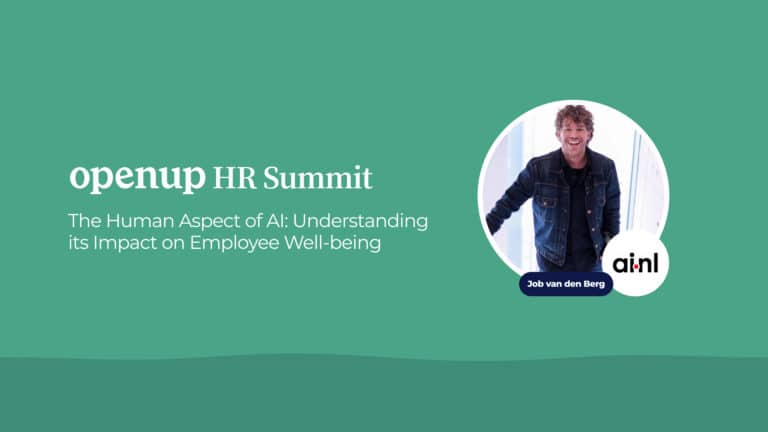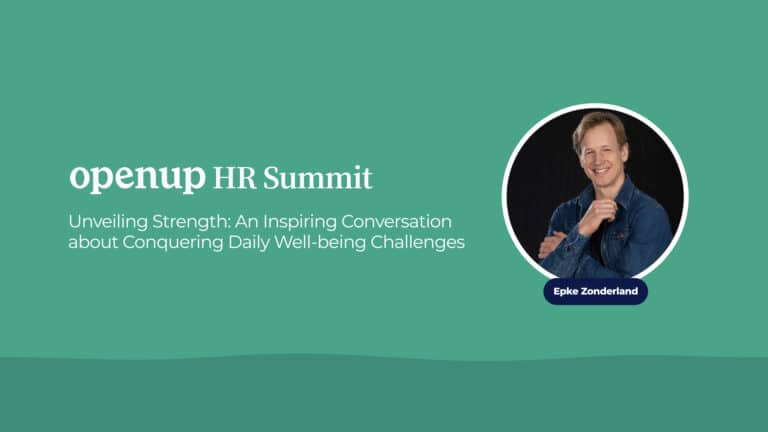Taking care of our mental health should be regarded as a natural habit in our daily routine. Just like exercising benefits our body, we consider taking care of our brain and mind as a preventative form of care. This applies to every area of our lives, whether it is professional, personal, or social.
We are happy to say that we are not the only ones working based on this philosophy. Other companies are normalising and prioritising the conversation around mental health. Florence Allard, Employee Wellbeing & Engagement Specialist at Oxfam Novib shared with us her perspective on mental well-being, inside and outside the workplace.
Hi Florence! We would like to start with a very simple question: how are you feeling today?
I’m feeling pretty well. I am in a good mood, actually! Yesterday was my birthday, so I had some celebrations with my family. I also decided to take a day off and it was really nice. I didn’t sleep a lot because we went out, but I’m feeling very energetic and mentally refreshed. It was definitely worth it!
Can you tell us a little more about Oxfam Novib and your view on mental health within the company?
We are an international NGO that fights inequality to end poverty and injustice. We support activists, women, and youth organisations worldwide. Our goal is to help those who suffer the most to have more equal rights and ultimately contribute to a better world.
Everyone within the organisation is really committed to our mission. When people join Oxfam, it is because they truly want to contribute to making a difference in the world. Sometimes, this can be quite challenging because it requires a balance between personal and professional life. For example, people can be so committed that they might just forget about taking care of themselves.
For this reason, one of the things that we are trying to do within the organisation is to have a wider approach to well-being. Mental health has of course a great part in this. We believe that there are many things that a company can do to help people with their mental health. We want to make a change on the organisational level, but also on an individual level. It is a combination of factors!
How do you make sure people talk openly about mental health in the workplace?
We recently started a journey towards a change of culture. It consists of different kinds of actions — some of them have a wider scope, while others are uniquely focused on well-being. For example, at the beginning of the year, we launched a survey to ask employees about their needs, their values and their engagement within the organisation. It was not a specific questionnaire about mental health, but it allowed us to gather valuable information about how people were doing in the workplace and what were the main challenges that they were facing.
After we got the results, we realised that it was time to take action. We wanted to deeply understand the outcomes of the survey by asking people to contribute to the conversation by sharing their feelings and experiences. It was really a journey. We did that for several months with different meetings and with different channels for people to really get involved.
We also opened a line of communication around well-being between the teams and the managers. Part of the feedback conversations during the year is now devoted to check-in with the staff about their feelings. Ultimately, mental health is part of the employee experience! We can all face difficult situations and it’s necessary to develop some empathy within the workplace. Of course, it is an ongoing journey, and we are constantly building on that.
What are the mental health challenges that people are facing within the company?
A few of our colleagues are on long-term sick leave. For some of them, this was directly linked with burnout. COVID had a big impact on many employees who were not used to working from home. For managers as well it wasn’t easy, as it really requires skills to manage people remotely.
Today, finding a good balance within this new hybrid environment is something that has to be learned step by step – it can be challenging and energy-consuming. Our main priority is to recreate some kind of connection with the organisation and between employees. This is why we started organising informal events where all different teams have the chance to interact with each other, meet colleagues and have fun together.
Why did you decide to partner with OpenUp?
We started the collaboration with OpenUp in December 2021. We wanted to put the focus on mental health in a concrete way. After we launched the well-being and engagement survey, each employee received a personal report linked with their vitality, based on their answers to the questionnaire. This had a great impact: it gave our employees the feeling of helping the organisation, but also helped them to find out more about themselves and tips on what they could do to increase their own well-being.
Similarly, when we partnered with OpenUp we were enthusiastic about all the services offered, not only the individual session with the psychologists, but also the masterclass, the mindfulness sessions, and the group sessions.
Among other things that made us choose OpenUp there is the fact that it’s external, professional and it’s with licensed experts. In addition, employees can reach out for support without informing their manager or HRs about using the service. This form of privacy is really nice as well.
How do people at Oxfam Novib react to our service?
The feedback is extremely positive. The only fact that the organisation is providing a mental health support service is well-received. We also can tell from the numbers, as we have a report every month that let us monitor how many people are using the service. We also keep promoting OpenUp internally for people to be reminded that this service is available for anyone in need. Eventually, we all need help sometimes. Real change occurs when this need is normalised and OpenUp manages to do that brilliantly.
What does mental health personally mean to you? And how do you take care of your mental well-being?
I realised since I was very young that mental health is something fundamental to take care of. I had challenging moments in my life when it was hard to cope with changes and uncertainties. But on the other side, these situations thought me a lot. I learned so much about myself, my limits, my priorities, what gives me energy and what instead deprives me of it.
What is working for me is a combination of different things. I do yoga once a week and, after that, I do some meditation. Just a few minutes to breathe and reconnect with my inner self. I try to exercise, even simply by taking the bike to come to the office, for example. This is also part of my motivation. And I am also asking much more for help. This makes a huge difference in my everyday life.
“As a perfectionist, I sometimes have the tendency to put a lot of pressure on myself and I am aware that this doesn’t benefit my mental health. This is also why I decided to start some coaching to better learn how to let go. Sometimes it’s not easy and I have to find ways to fight a little bit with myself. But I know that, in the end, I’m going to be happier and feel mentally better. Growth is one of the main outcomes of this process for me.”
What advice would you give to those who will read this conversation?
My suggestion would be to just take everything step by step. Find out what is giving you energy and connect more with yourself. Take some time every day to check in with your inner self and listen to what your mind is telling you.
And just remember you are not alone. We are all facing struggles from time to time and simply knowing that we are not the only ones going through these kinds of feelings can really make a difference. We are all in this together.
